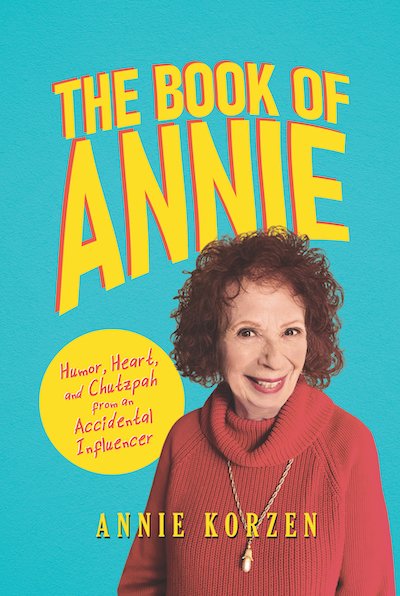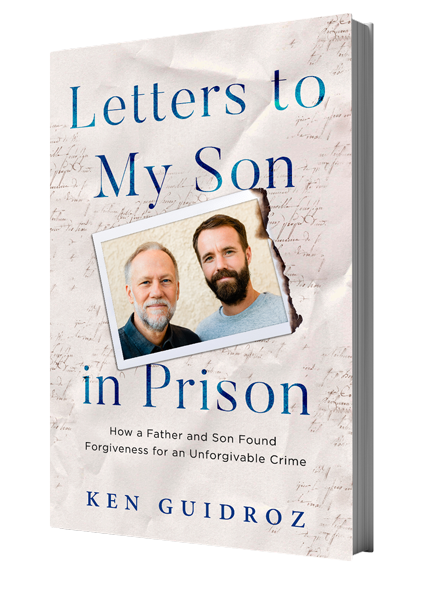KARIN GUTMAN: In all the things you’ve written, you seem to write little about your childhood. How do you think the way you were brought up shaped you?
ABIGAIL THOMAS: My father [Lewis Thomas] wrote poetry in the 30s and 40s, which the Atlantic published, and I loved his poems. But he didn’t really start writing for the New England Journal of Medicine until the 70s. If he was excited about something, there would be a tremble and tremor in his voice as he talked about something I had no understanding of, and I thought to myself, That’s the way I want to live, I want to live on the verge, just where he is right now… you don’t know what’s going to happen but you know it’s going to be good. And that is what writing does for all of us, I think. You wake up in gear and you can’t wait to see where you are, where you’ve been, and where you’re going, because you don’t know half the time where you’re going.
KARIN: In the process of writing memoir, you talk about going into the basement and pulling out what’s down there and raising it up to the light. What do you mean by that?
ABIGAIL: Well, it has all its power in the dark, and when you bring it up to the light, you see that it has edges and it’s finite. You look at it really closely—the parts of you you’d rather not know or talk about, but we all have them in all aspects of our lives. It’s so much easier to bring them up and write about them and achieve a kind of clarity that we’re all hungering for, whether we know it or not. It’s a way of putting it somewhere else. And it’s also having control over it. Nobody can sneak up behind you and say, “I know what you did…” I’ve already told you what I did.
KARIN: What does it mean to put it somewhere else?
ABIGAIL: You put it in writing, and it’s no longer in you. It isn’t buried in you somewhere. You’ve made something out of it. You’ve made something different and separate out of it. It’s helpful. You find it easier to forgive yourself for things you don’t even want to admit to. It doesn’t mean everything has to go into the book you’re writing, but it is important to take a look. Who are you kidding if you don’t. It is memoir.
I think when you’re writing memoir, if you wind up where you thought you were going to wind up, you probably haven’t looked hard enough. You have to make room for the surprises. It saves lives. It makes all the difference in the world.
KARIN: How does writing memoir save lives?
ABIGAIL: When Rich got hit [by a car]… that’s the only memoir I wrote chronologically as it was happening. I don’t know how I would have gotten through any of that if I weren’t writing it down—where I was, what I was doing, whether I was in the dog park or the lunch room where he was. That saved us both, I think. If you write it... it doesn’t really make sense... but it fits together somehow. I don’t know how else to say that. When you’re going through a real crisis, to keep track of it is better than just being lost, just losing yourself in it.
KARIN: You've written about your aversion to the term narrative arc. How would you define what a story is?
ABIGAIL: Well, I can tell you what I don’t like. I don’t like anything approaching perfection. I don’t like anything neat and tidy. I like a big mess. I like to write in the first person and the third person, and sometimes the second person. When I make things out of clay, I like things rough as though somebody just barely put this together, and I think that must have something to do with the way I write. I don’t know how to answer this except that I like a bit of a mess. I don’t like everything standing straight with its hair combed and its teeth brushed and its buttons all buttoned. The word curiosity is in my head. I want somebody to be curious to see what she’s going to do next, although I never really thought of that before. I want to be curious to see what I do next, and that produces whichever direction I’m going in.
Gosh, I wish I knew how to think about this.
KARIN: Well, it’s asking you to analyze your own work, which I suppose takes away from the experience of it.
ABIGAIL: It’s just hard, because my mind doesn’t work that way. I’m not good at analyzing. I think that’s because I didn’t go back to college. Oh well. I can’t do it.
KARIN: You’re giving a good advertisement for not going to school.
ABIGAIL: I don’t think you need school to be a writer. In fact, I think you need to forget everything you learned when you sit down to start—not know where you’re going or have some vague idea.
KARIN: I know you spent some time in publishing. How did that influence you? It’s interesting that you didn’t arrive to the page yourself as a writer until your late 40s, and yet you were around it and it was accessible.
ABIGAIL: It was extremely helpful. I remember getting a book—it was called French Dirt by Robert Goodman. It's still in print. The book wasn't very good, but the little thing in the very front, which was his discussion of what this book would be about, was really good. I learned that if you pay attention and make suggestions, you can get a really good book out of a writer who hasn’t yet written a really good book because you saw 12 sentences that were really good, when he was paying attention. I learned that a writer with spark, or some kind of talent, could get better.
I spent an awfully long time crumpling things up and tossing them across the room, saying, Who do you think you are? Because I thought you had to know something and that it had to be important and deep. But no, you just have to start.
Anyway, that's what I learned in publishing. I loved it until they made me an assistant editor, and then I realized I'd really have to know what I was talking about. If I loved a book, I would have to speak for whether it made any money or not. So I quit.
KARIN: Do you think about your audience or are you writing purely for yourself?
ABIGAIL: I am writing purely for myself. I'm writing for clarity and I'm writing for fun. And I'm writing to see what the hell the back of my mind is thinking when the front of my mind is doing nothing. It’s just so interesting… The smallest detail can take you someplace. You can write 15 or 20 or 500 pages of it, and then you get to the first sentence of what you're really going to write. So nothing is ever wasted.
KARIN: What do you do when you’re stuck?
ABIGAIL: I had a lot of trouble with the beginning of What Comes Next and How to Like It. I’d gotten the whole book ready, but I couldn't find a way to start it. I tried it every which way until suddenly I began to write I can't write this… I can't do this… This is impossible. Then I wrote about what I was doing instead of writing, which was painting, and that segued right into the book. So sometimes, if you're having trouble, just stare at it and say, I hate writing this. I don't want to write this. This is too hard. These are the following 12 reasons why this is too hard. I'm just going to stomp my foot and eat chocolate cake forever… And then you might find that you've gotten yourself right into the book.
KARIN: Do you find moving between creative mediums helpful?
ABIGAIL: It's nice to have something else to do. And the clay is so sensual, which is what I'm doing now. The clay has a mind of its own. You can't boss it around. You can't boss writing around either. But you really can't force the clay and that's interesting and fun and makes for something else to put in whatever you're writing. I’ve done a whole little thing about clay.
I think we're supposed to make things with our thumbs and imaginations. Otherwise, it's just shopping, which can be very creative, but I think that's what a lot of this country has turned to use as a creative outlet. There are more interesting things to do.
KARIN: You've watched memoir evolve over the years. What's your perspective on it? I know it's your preferred genre to write in.
ABIGAIL: I love that it wasn't just a fad that disappeared. People kept saying, “This is going to be over within a year's time. Don't bother.” I love that we're curious about other peoples’ lives and that people are willing to write about them. It's been a while since I could read anything of any great length that wasn't written by a student. So, it's hard for me to talk about what memoir is like nowadays. I just love that it's still alive, that it's just as vital an artform as ever, more so probably.
KARIN: What do you think that it says about the age we’re living in and us as a people?
ABIGAIL: I just hope that we’re curious about each other and interested in each other and need help from each other. All of those things can be satisfied in a memoir. You can read about somebody who has experienced something that you've experienced. It helps, I think.
KARIN: Thank you, Abby. I think we'll all do a little bit of writing today.
ABIGAIL: Oh, please do! You can start with the line, “This is a lie I've told before.” Of course, maybe nobody lied. And you can send it to me when you're done.
Watch the full interview and video replay.
Buy the book
To learn more about Abigail Thomas, visit her site.
See all interviews










